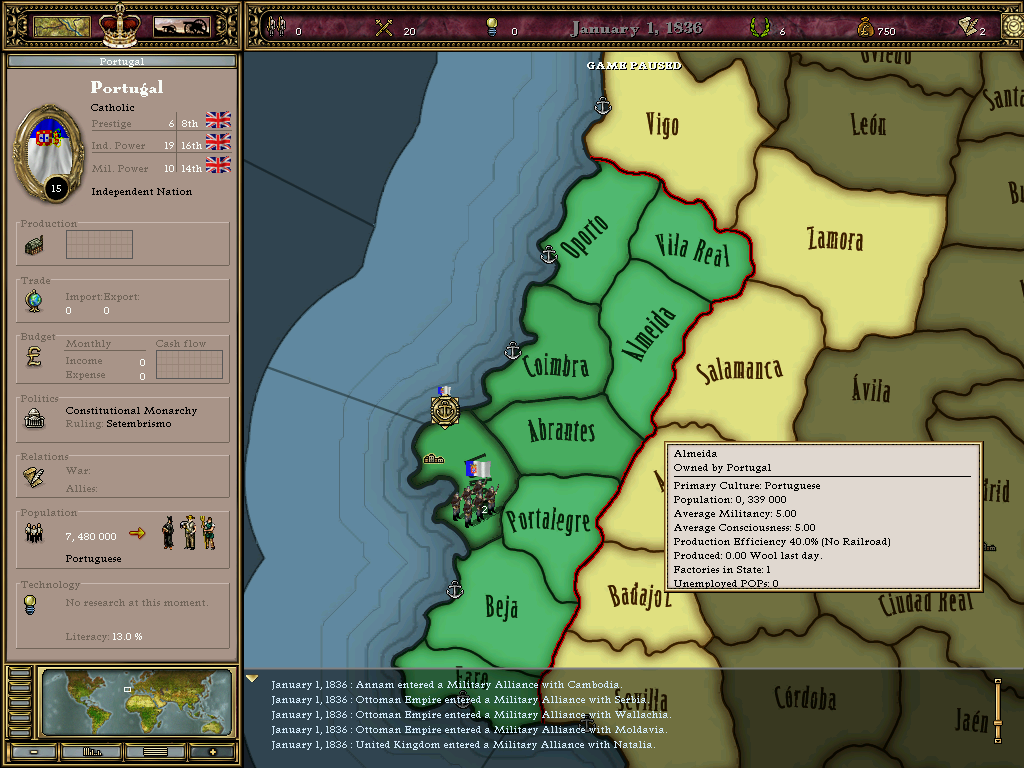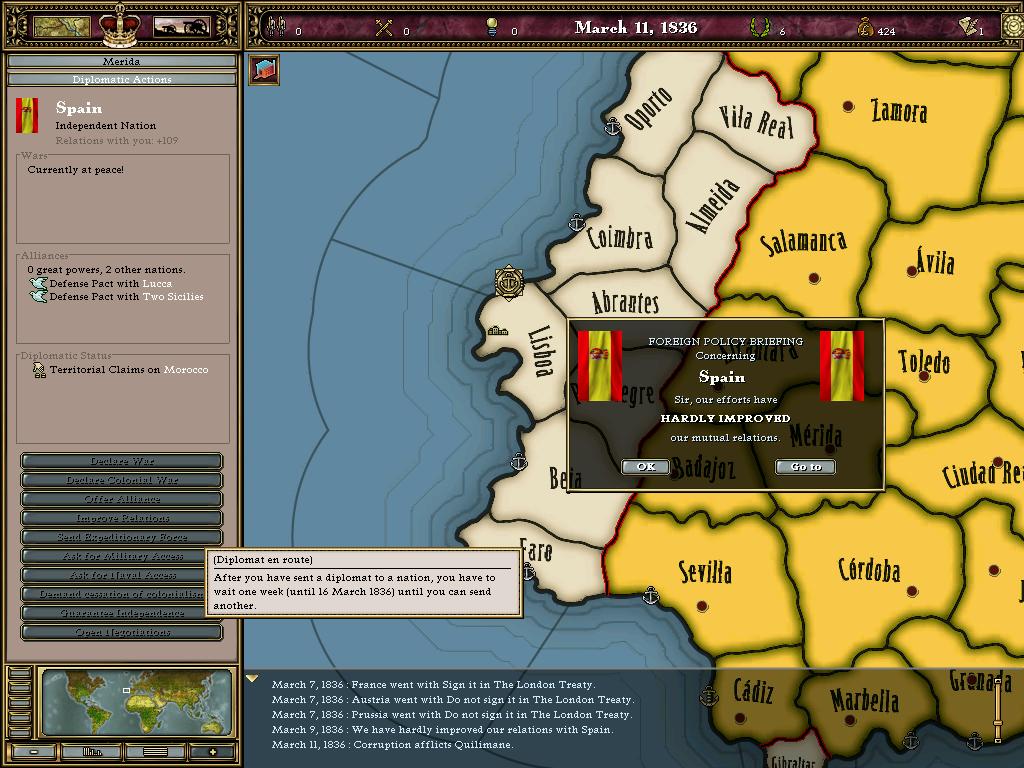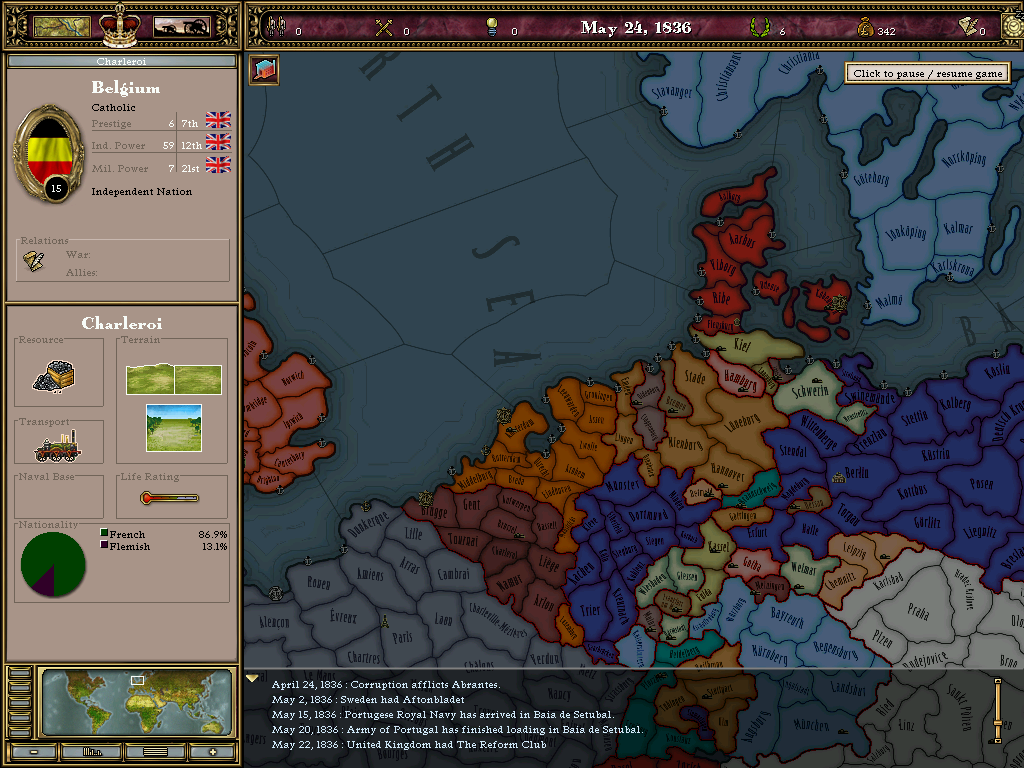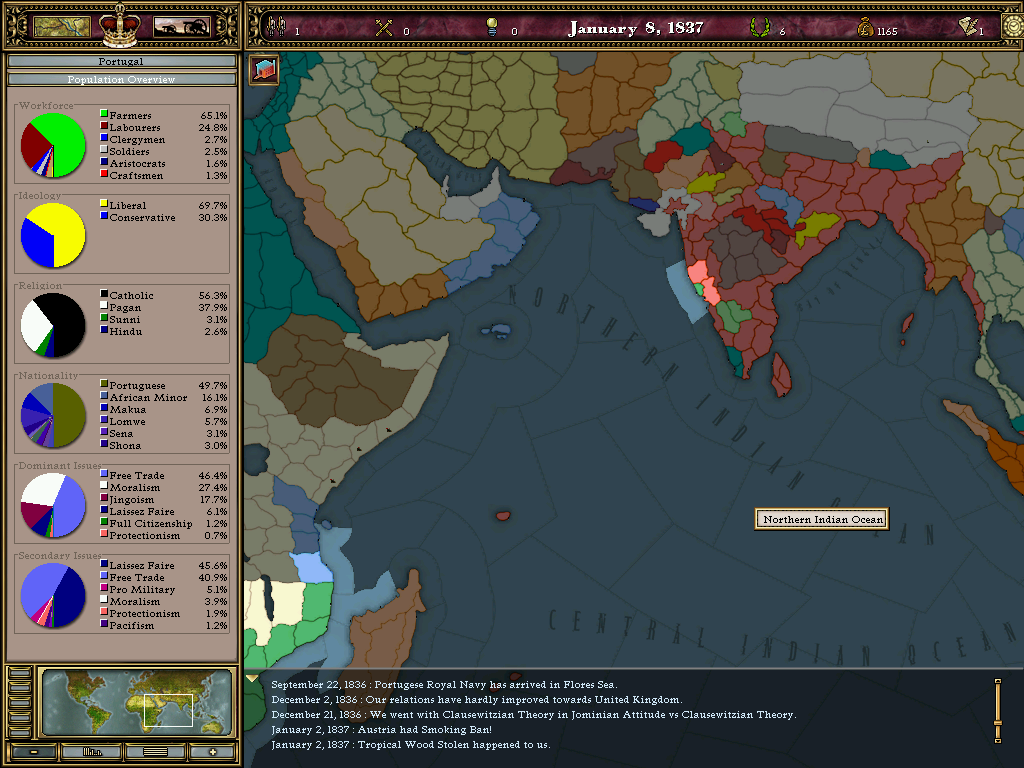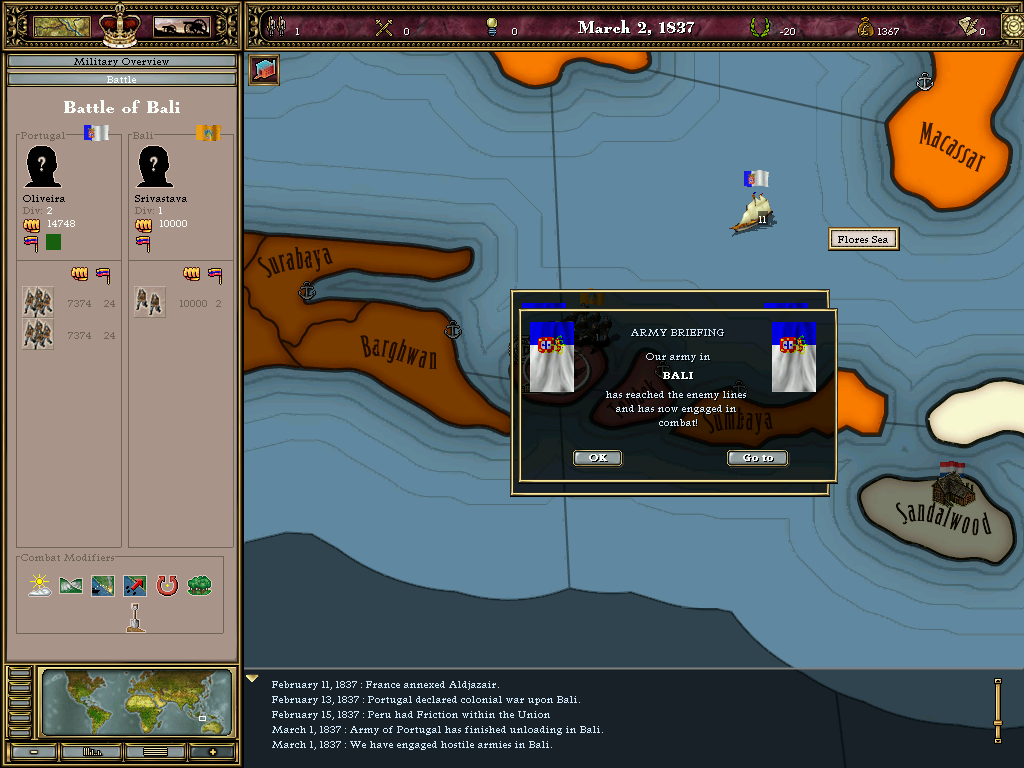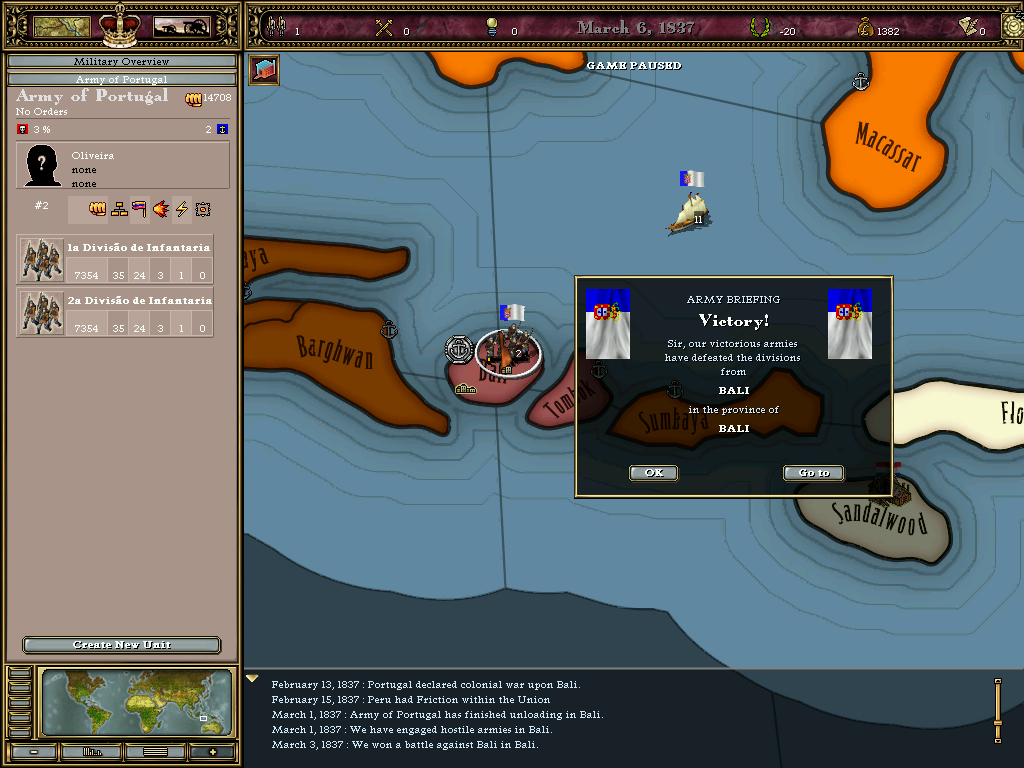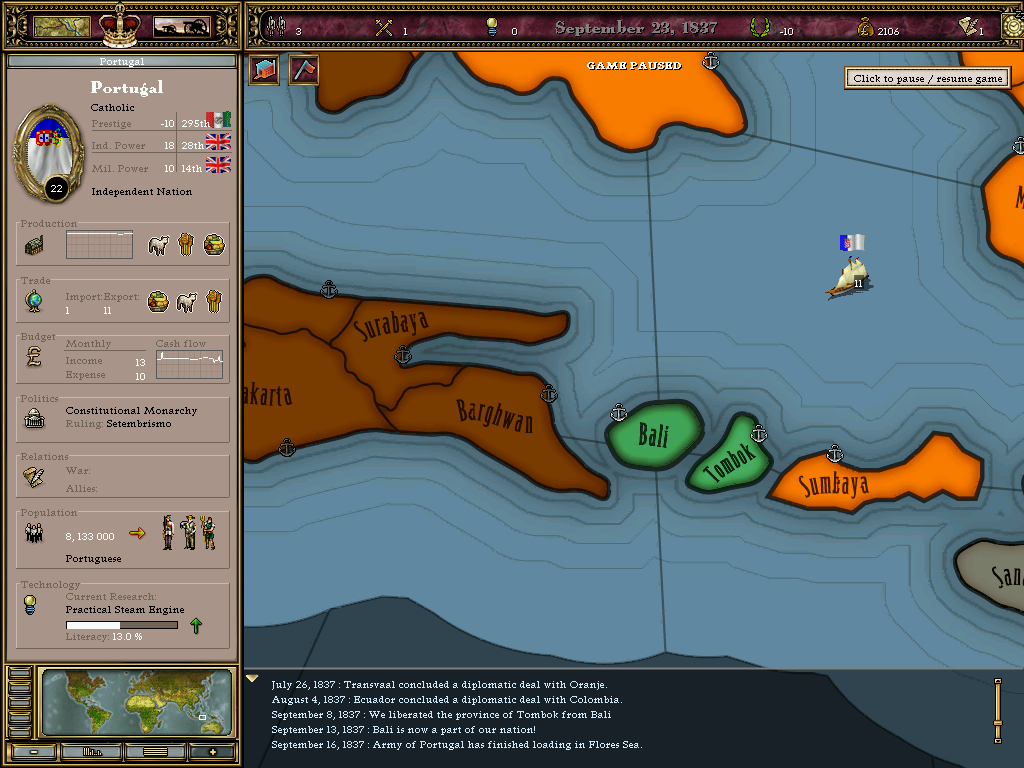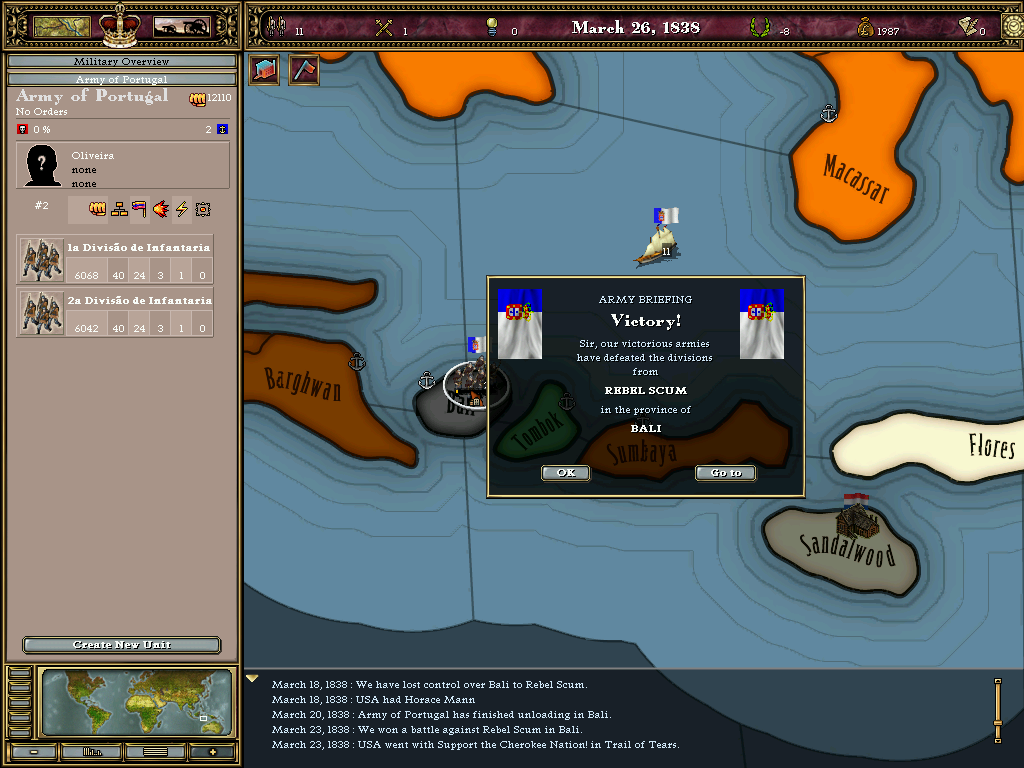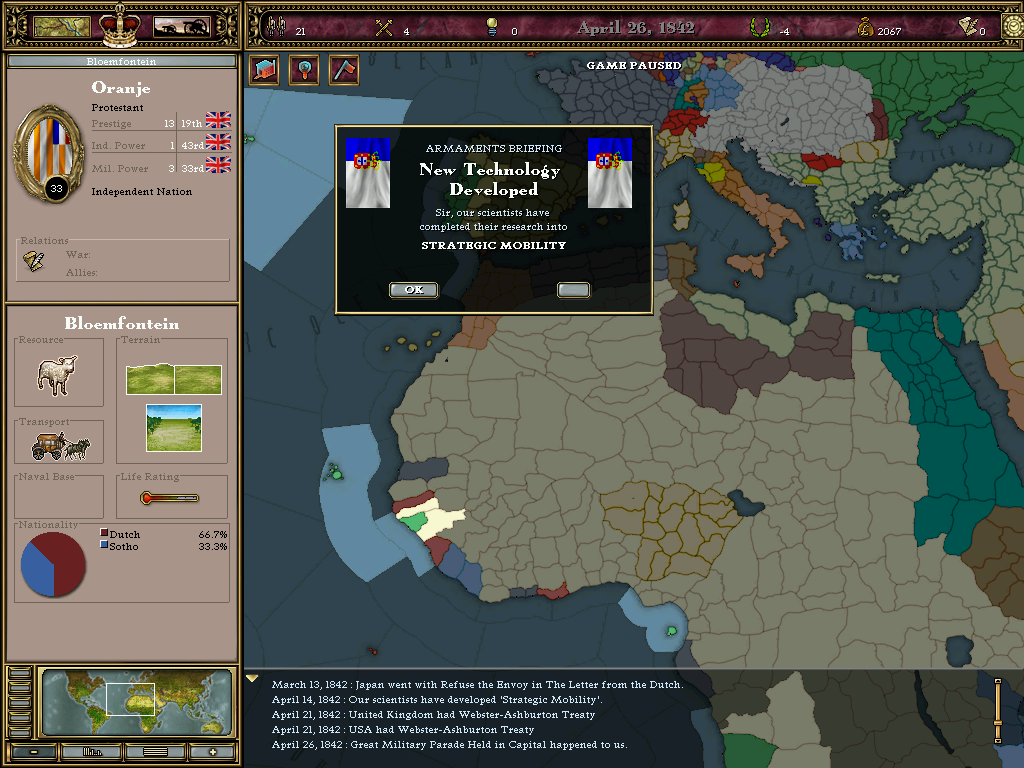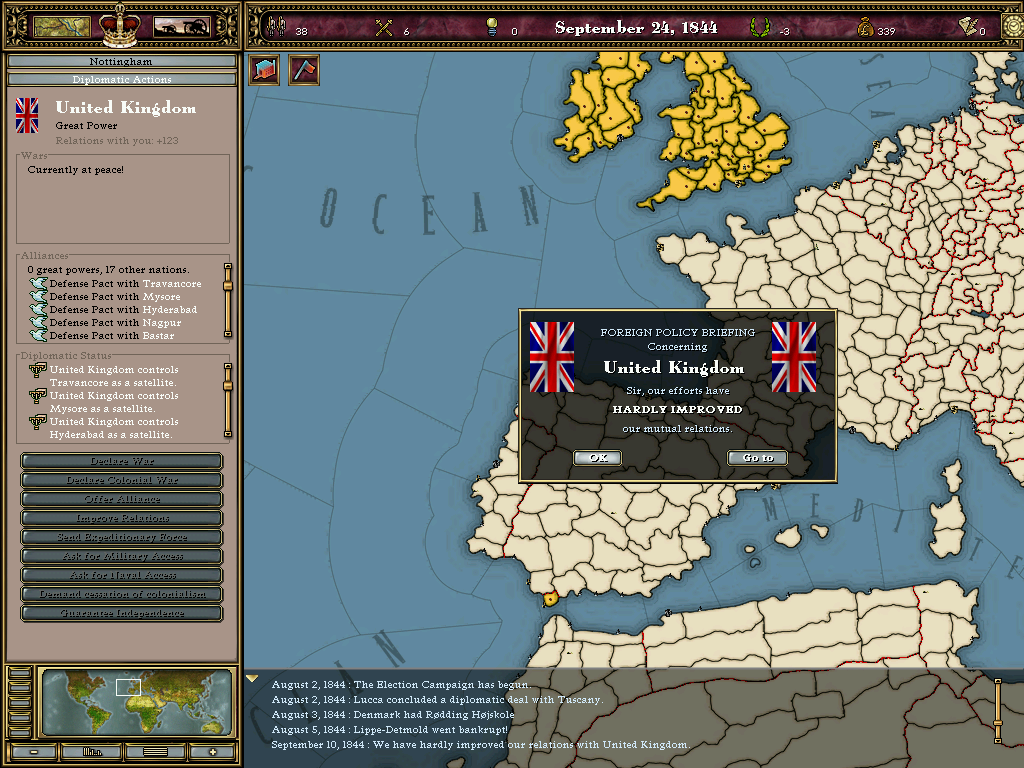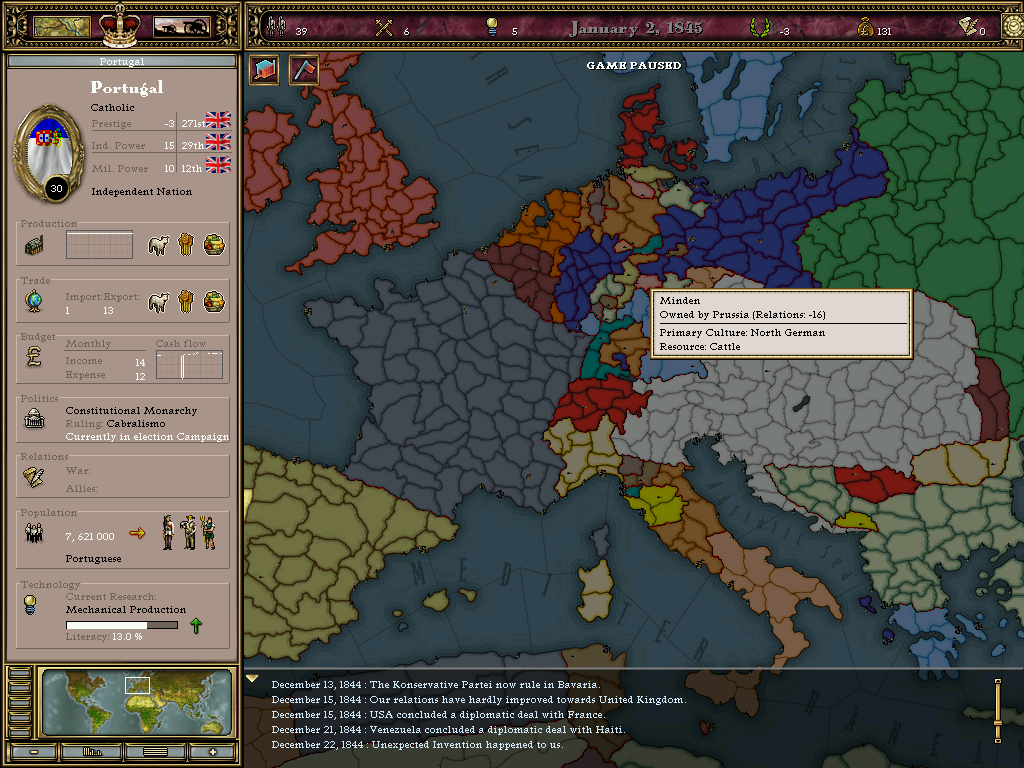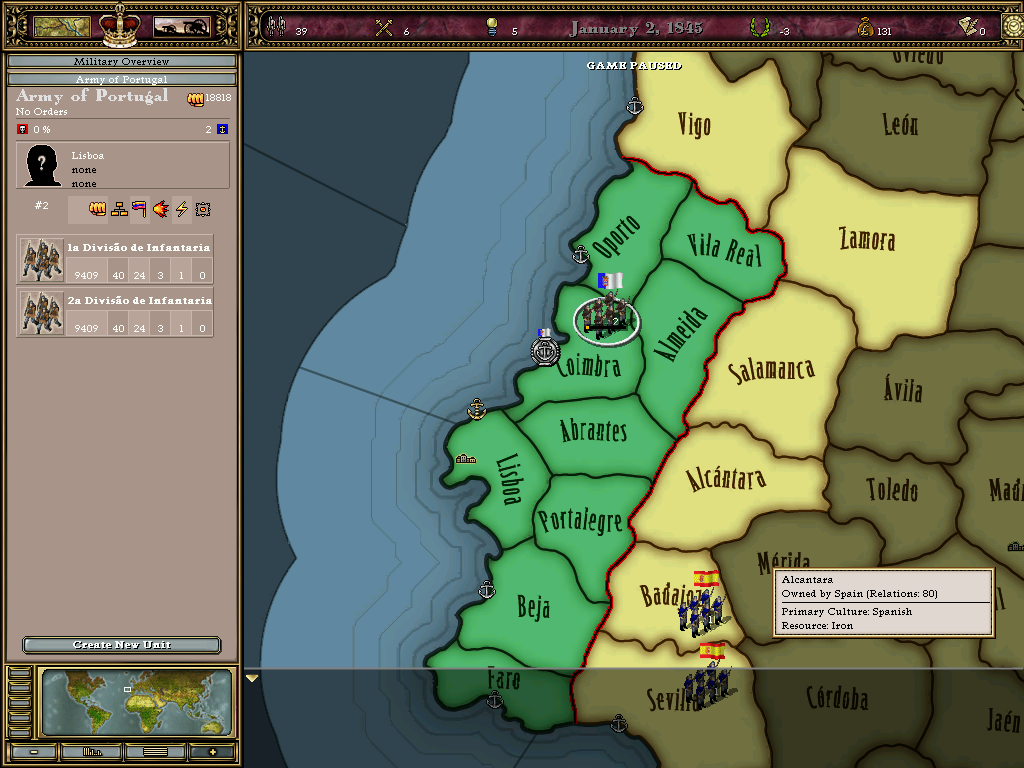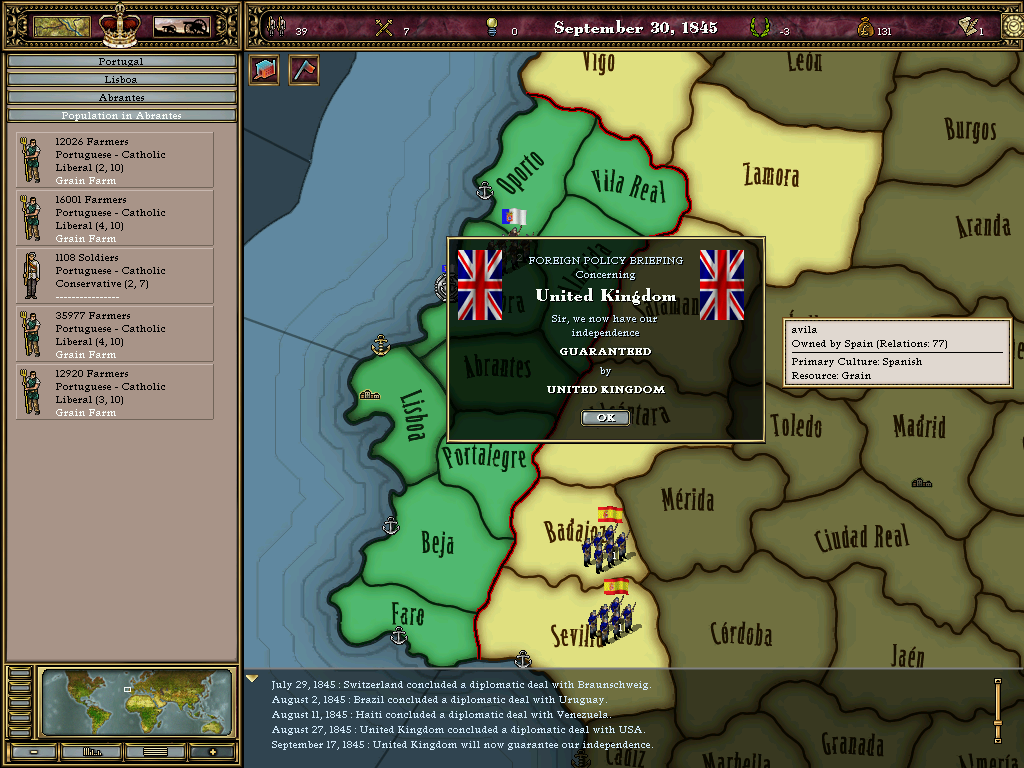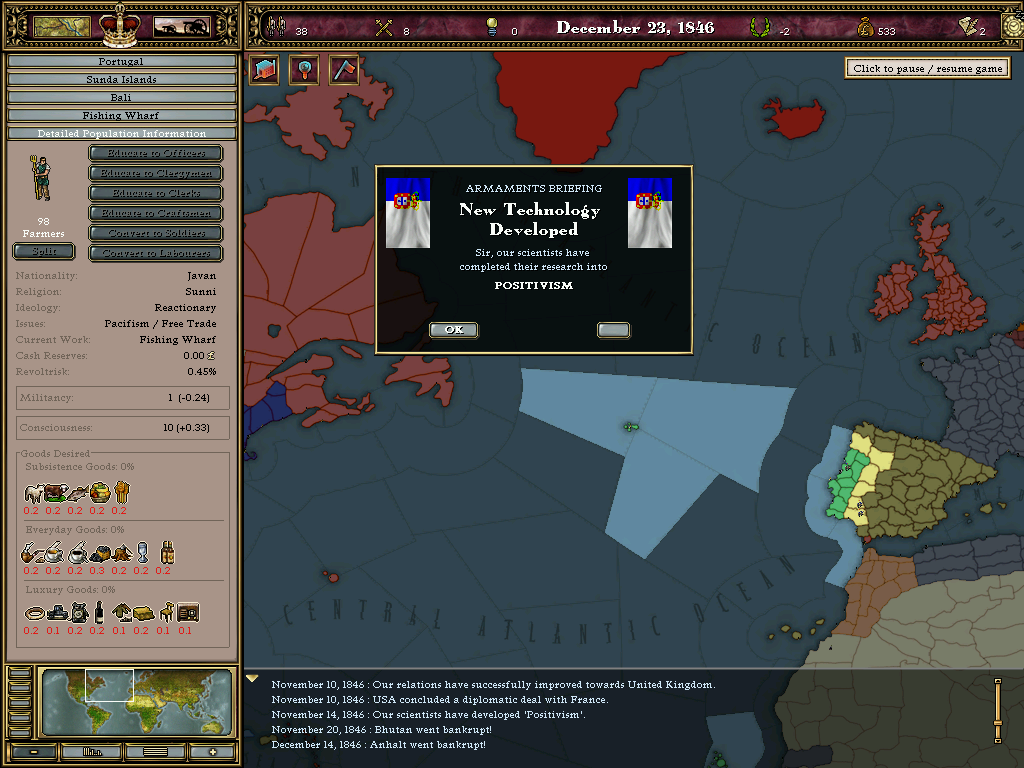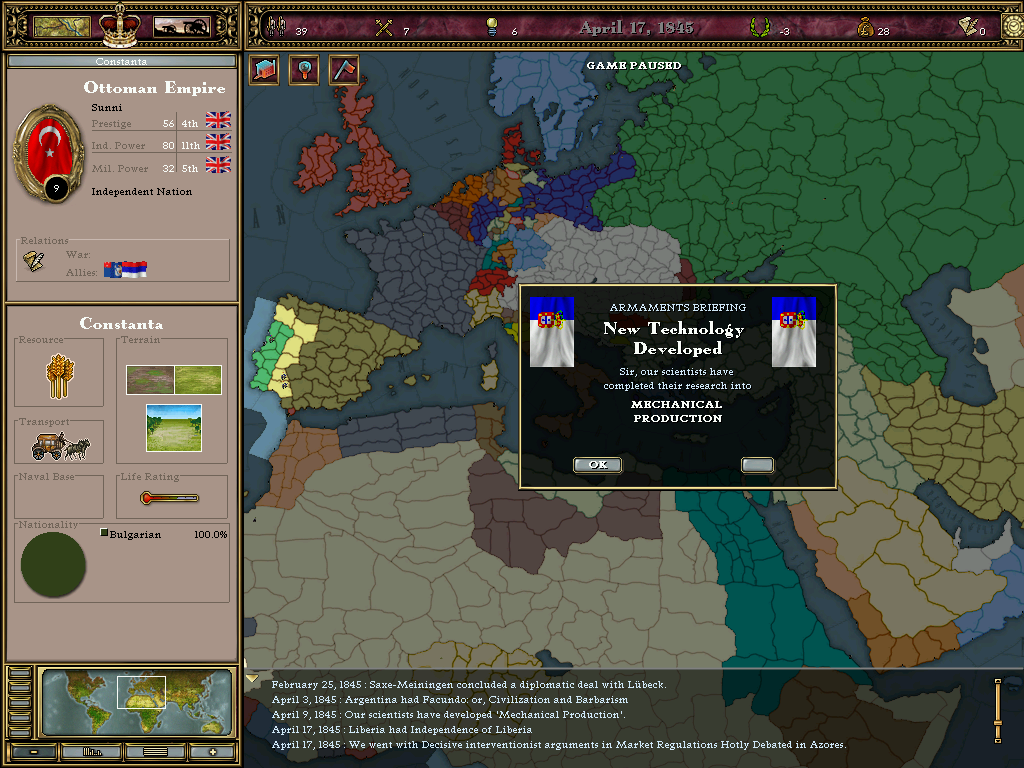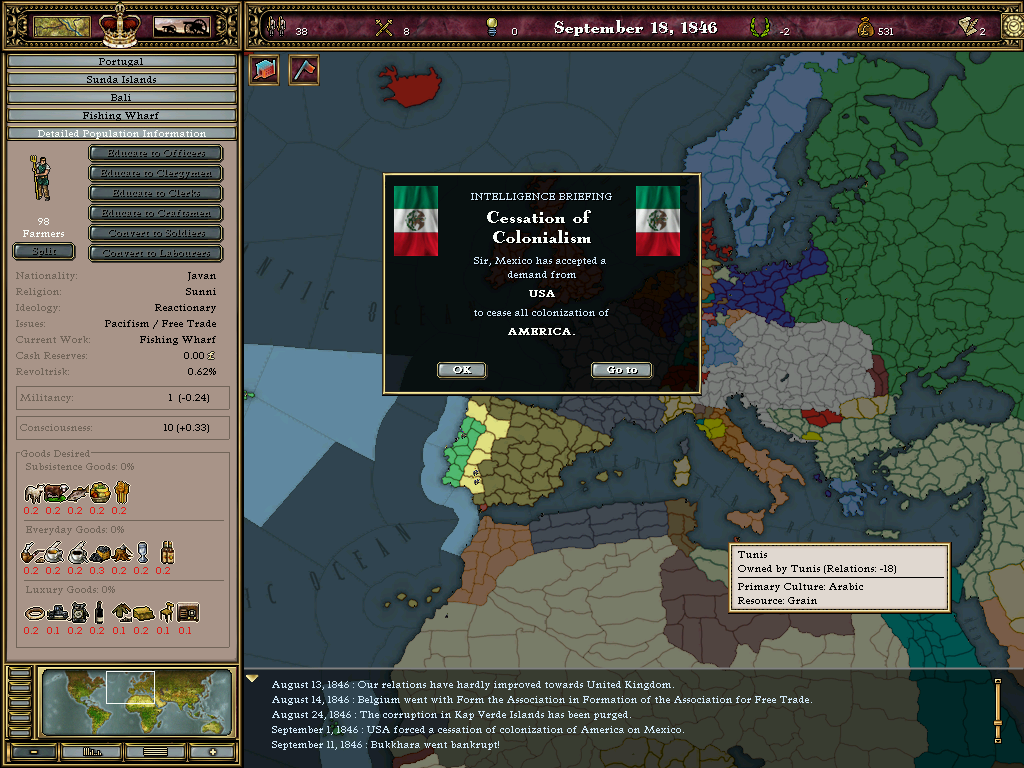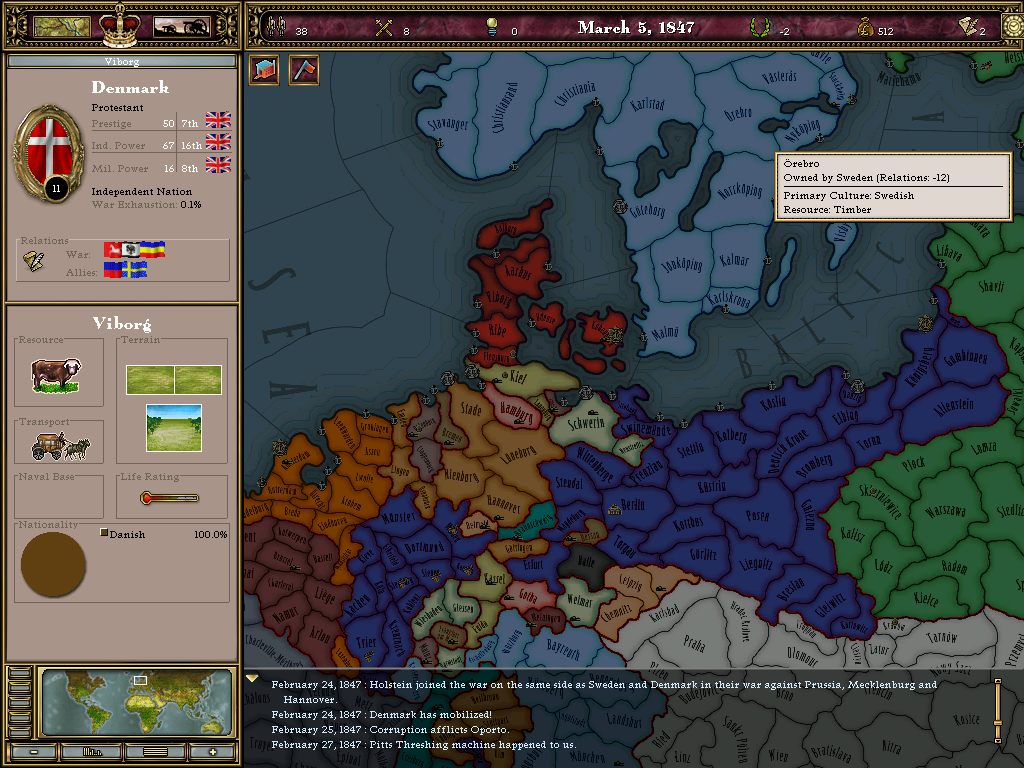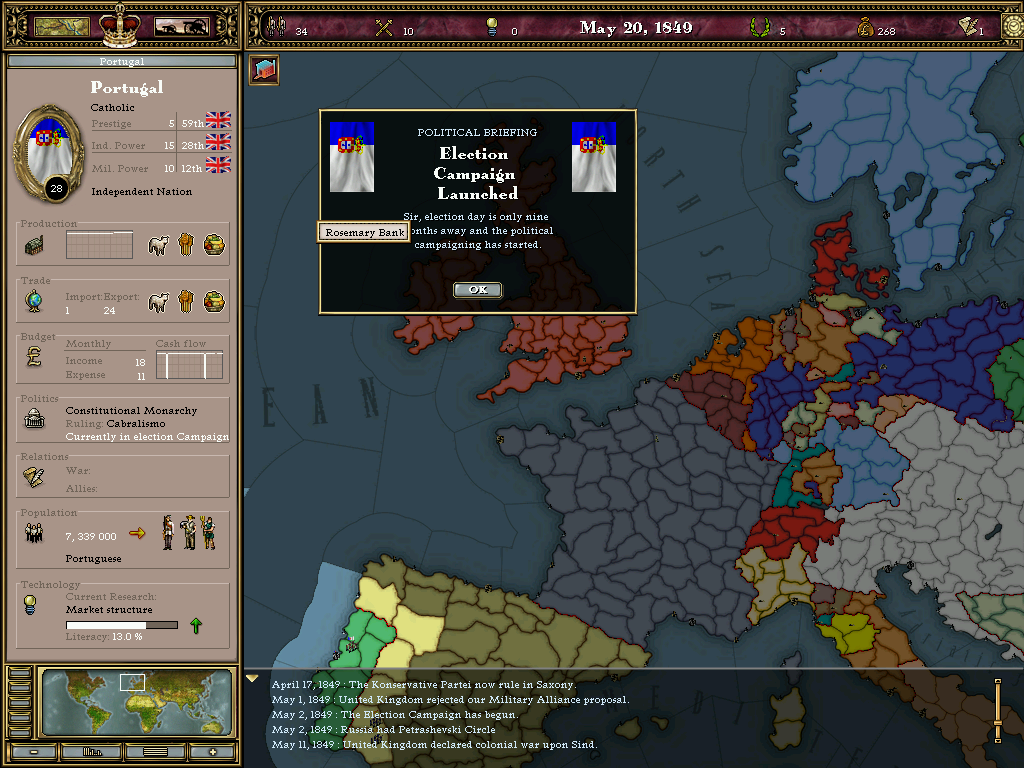Portugal lost much of its wealth and status with the destruction of Lisbon in a 1755 earthquake, occupation during the Napoleonic Wars and the independence of Brazil, its wealthiest colony, in 1822. By 1936, things were looking bleak. A poor economy, little industry, and an illiterate population meant that advancement would prove to be a difficult task. Nevertheless, King Ferdinand II sought to regain his place on the world stage, and give Portugal a name for itself. This would prove to be one of the most important centuries for the small nation.
Ferdinand had attempted to increase relations with it's Spanish neighbour. However, they quite abruptly shook off any relationship that was more than a cordial trade agreement. Annoyed, and in failure, the Portuguese diplomats set their eyes on a new target.
Statesman Joao Mendes wrote in his memoirs:
"It was not the moment when the Spanish had fallen to the French that they had become subordinate, no. It had not been their rapid collapse of the colonial empire. Rather, it was their arrogance and pisspoor diplomacy that had done so! This was the year of their decline, and yet they still refuse assistance! how I buffaw at their insolence! How I chortle! They have little against us, and rightfully so. Portugal still maintains a sense of stability, and prestige. It is my deepest sorrow that this diplomatic mission had failed, for it could have lead to a far different situation for the Portuguese and Spanish people. However, it is also fortunate that they did not, for I would know they would have attempted to control our socio-economic policies. It is a double edged sword, and it seems we have been stabbed twice."
In the next two months, the revolt in the Netherlands had ended - Belgium was de facto and de jure an independent nation.
Fearing a revolt of his own, the King demanded a survey on the views of his people. His ambassadors traveled not just the mainland, but colonies, in a decision that would change Portuguese history irreversibly. It took many long weeks, but it had not been in vain. Every ideological policy, right down to a farmer in Mozambique, had been jotted down in the bureaucrat's diary.
Here, we have the historical source, directly from the Governor's palace. They were retrieved by the Portuguese Historical Society in 1997, marking over 150 years of their use. Here, on the side, the last remaining information from the source, are the records from the census. Unfortunately, the rest of the information is not available to the public, although we assume it has been lost.
17.7% of the population wanted war now, and they were itching for it. The wealth of Asia beckoned in all who ventured, and the Portuguese had walked straight towards it. The bureaucrats had furiously scribbled justifications for a new war to strengthen the Portuguese colonial holdings.
And so, on March the 1st, 1837, the Portuguese sent a formal declaration of war on Bali, on the pretext that the nation had been sending pirate fleets to harass traders in East Timor. The validity of this statement, while assumed to be false, is widely unknown among the historical community even today, for there is no record of piracy being confirmed except from Portuguese sources. It is widely accepted that they were forgeries from the press, however.
The Balians entered battle the next day, and the Battle of Fabio's Bridge began.
Unsurprisingly, the armies were hastily crushed. Only the resulting partisans were able to cause any real harm onto the Portuguese.
Due to the jungle-like terrain, the complete sieging of the island only ended in September. Nevertheless, the provinces had been integrated into the portuguese realm, securing presige and wealth for the formerly declining empire. The effect on the islands so small seemed to make a far larger impact than it would originally seem.
In 1838, Portuguese Colonists had been taking much of the fish from the native populations, which upset them greatly. The local populations rised up, and sieged the Governor's palace, making him tremble in fear, and attempt to flee.
"I have never been so scared in my life, I say. The look in the eyes of each and every ones haunted me with an eerie feel which I shall never forget" - Governor Oliviaro Fabio of Bali.
Luckily, the governor was saved by the Portuguese armies. He was found traumatized, and starving. The rebels were severely punished for their crimes, and 2 colonial police divisions were formed - one for Bali, and one for Tombok. It marked the end of the Balian independence dreams, and the beginning of a more militaristic, authoritarian approach for Portugal - which was, by and large, welcomed and accepted by their populace back home.
4 years later, a man named Filipe Glaucia would come to fame in Portugal, a military engineer who came to Oporto to suggest an idea to the King's armies. Little would any of them know what impact this new doctrine would have on militaries worldwide
Strategic Mobility was, although theorised, never perfected, until one of Filipe's excersizes showed it's full potential and uses it could have, especially in suppressing any future revolts. Hoping for more successes, the King sent diplomats to the United Kingdom, in hopes of increased relations.
During the late 16th century England found itself fighting against Spain which at this time was in personal union with Portugal. The English Armada was launched as part of this conflict in an attempt to restore Portuguese independence, destroying both Spanish and Portuguese military ships which formed the Invincible Armada. Ever before, and ever since, Portugal and the United Kingdom had been allies. Surely, the King believed, a new, more definite alliance could be signed - and they wouldn't be wrong for thinking so.
However, the expensive diplomatic mission was halted when the diplomat failed to speak clear English. He had only studied it briefly, contrary to what he told his superiors. His accents were thick and his translations poor and, while the British were still polite and respectful, they sent him home still feeling confused, not really grasping his intentions.
And so, as the Christmas of 1844 ended, so did the decline of the Portuguese empire. While the economy was still in the gutter, and the state more ridiculed due to it's poor diplomat's, the general opinion of Portugal had increased. It's armies had bolstered, it's technology had improved considerably, and relations with the United Kingdom were on the rise, as well as a new elections. However, I am afraid today's lecture will have to end. Tommorrow, I will be continuing my lecture.
See you then, class.



